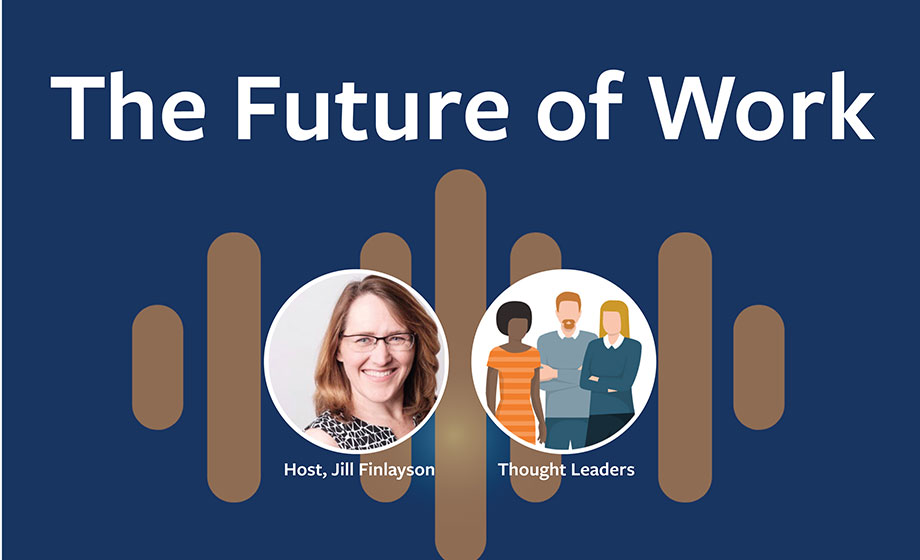Podcasts

The way we work and the skills we need to succeed continues to shift. Each month, we speak with industry leaders to discuss the changing evolution of the workforce and how you can stay competitive.
Social impact, change-making, entrepreneurship. Opportunities abound to affect positive impact and influence by leveraging your passions. Extraordinary things can happen when passion meets purpose. Sounds overwhelming? It doesn't need to be. You may already have a side hustle that spotlights your passion. You may already be thinking about that one project that you never seem to have enough time to put into motion. Find out how you can get started on a path toward social entrepreneurship!
Millions of Americans entering the workforce don’t have a traditional four-year college degree. Earning a degree may not be realistic, attainable or appealing for everyone. Many folks are instead pursuing alternative educational paths—from on-the-job-training to certificates—to advance their careers. The traditional four-year degree is only one way to demonstrate needed work skills. But are prospective employers feeling the same way?
In this episode, we’re taking a very real look at how AI is changing the hiring landscape. Applicants are using ChatGPT to write job opening-specific resumes, which in turn is making applicants meld together and what this episode’s guest calls a sea of sameness. On the other side of the application, managers are turning to ChatGPT to help write job descriptions. This is creating job description templates that are not specific to the actual open position. So how do you cut through the AI “red tape” when it comes to job descriptions and applying?
We’re turning our attention to the deskless worker—those who work in manufacturing, front-line support, health care and so many other areas. Their job does not require them to be at a desk or in a traditional office setting. They’re on the go, in the field, working in environments that demand mobility and flexibility. How do we accelerate the learning and upskilling of the deskless worker? Is it through AI, advanced communications, introduction to new opportunities? How do we incorporate more inclusion for this majority group of workers?
Demand for mental health benefits has grown. Psychologists say they can't meet the growing demand for mental health care—whether it’s not having enough open positions or three-month-long waitlists. There is a growing market for apps to fill the gaps, as well as platforms that connect people with licensed therapists or a number of AI-powered solutions that emulate a therapist. All of this has an impact on workers and the workplace.
Job listings mentioning AI have doubled on LinkedIn, and demand for AI skills is appearing across a wide range of industries and sectors. Job seekers are jumping on the bandwagon and adding AI skills to their resumes. But what does this mean? What are employers looking for, where can you learn these skills, and how do you talk about (and use!) AI in meaningful ways.





